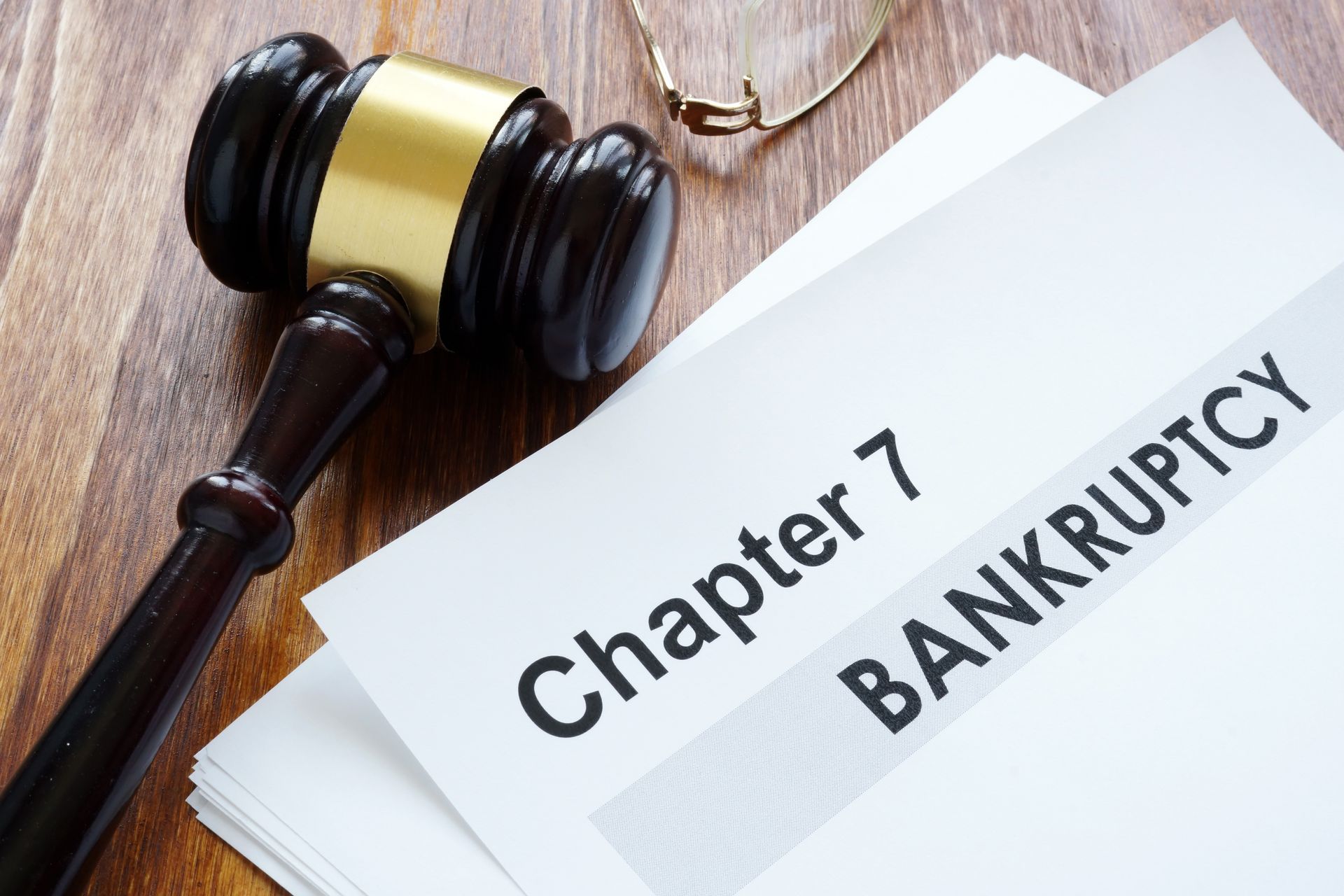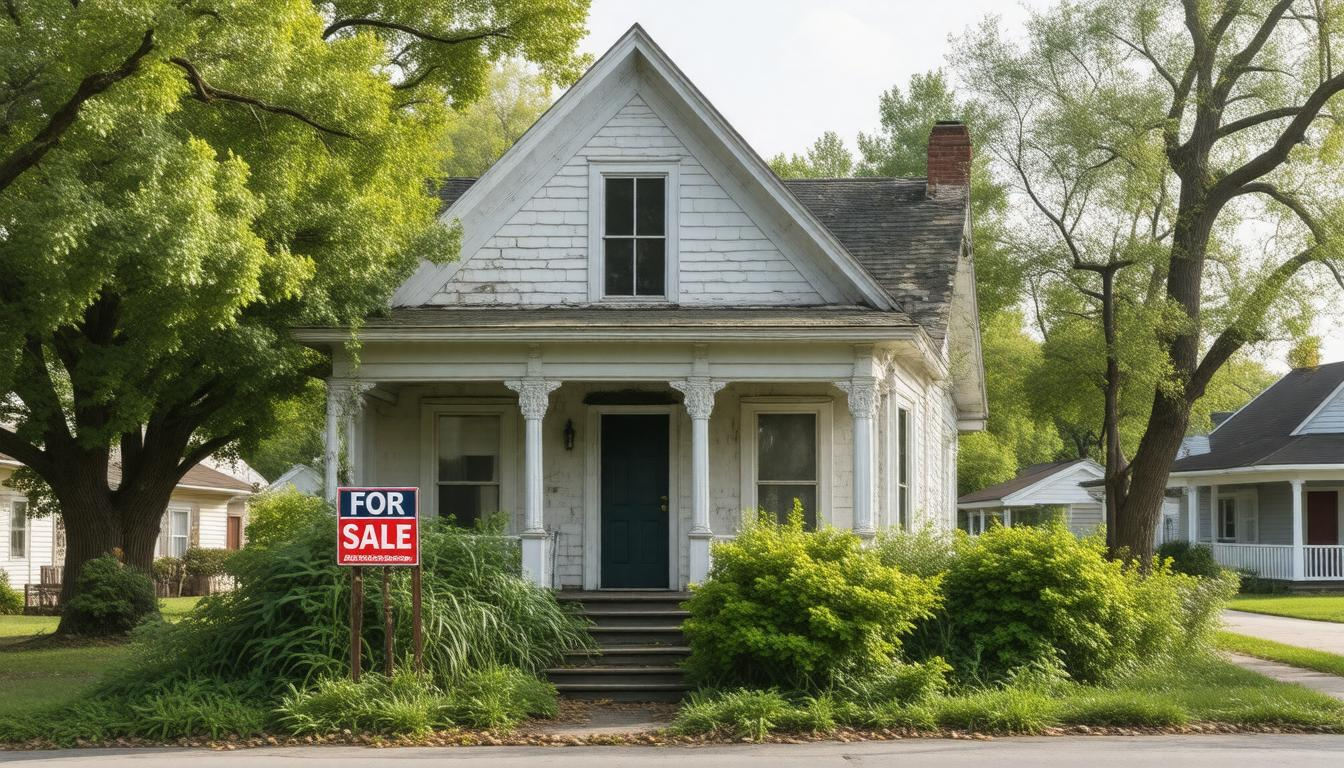Managing Bankruptcy and Foreclosure in Mississippi
Navigating Bankruptcy and Foreclosure in Mississippi

Navigating financial instability can be daunting, especially when faced with the looming threat of foreclosure. In Mississippi, where economic challenges have been particularly harsh, many homeowners find themselves unable to keep up with mortgage payments. This often leads to the distressing possibility of losing their homes. However, understanding the options available, such as filing for bankruptcy, can offer a lifeline.
Bankruptcy, particularly Chapter 7 and Chapter 13, plays a crucial role in halting foreclosure proceedings. While Chapter 7 involves liquidation, Chapter 13 offers a structured payment plan over three to five years, providing a chance to catch up on missed payments. Each option has its intricacies, and choosing the right path requires careful consideration of one's financial situation.
In this article, I'll explore how bankruptcy can be a strategic tool in preventing foreclosure in Mississippi, offering insights into the processes and potential outcomes for those facing financial hardship.
Understanding Foreclosure in Mississippi
Foreclosure in Mississippi involves unique procedures and timelines. The process begins when homeowners fall behind on mortgage payments. Typically, after about three months of missed payments, lenders have grounds to start foreclosure. Unlike other states, Mississippi allows for both judicial and nonjudicial foreclosures, with the latter being more common and expeditious.
In a nonjudicial foreclosure, lenders aren't required to file a lawsuit. Instead, they can simply advertise the sale in a newspaper for three weeks and post the notice on a courthouse door. This rapid approach means that foreclosure can conclude in as few as 60 days under Mississippi law.
Homeowners in Mississippi have specific rights during foreclosure. They will receive a breach letter, which is an official notice of default. Opportunities exist to apply for loan mitigation programs to regain good standing on the mortgage. Military personnel receive special protections, and anyone facing foreclosure can pay off their debt to stop the sale. After a foreclosure sale, excess funds may be refunded to the homeowner.
Mortgage borrowers can also use a deed in lieu of foreclosure to avoid official foreclosure proceedings. By transferring property ownership to the lender, borrowers can satisfy their debt obligations and avoid a foreclosure record, though they must vacate their home.
Mississippi's swift foreclosure process underscores the importance of understanding one's rights and options to effectively manage or avert foreclosure.
Types of Foreclosure in Mississippi
Mississippi employs two primary foreclosure methods: judicial and nonjudicial. Understanding these processes helps homeowners navigate challenging times.
Judicial Foreclosures
A judicial foreclosure involves a lawsuit filed by the lender. The court oversees this process, granting permission to sell the home if the lender wins the case. Homeowners can contest the lawsuit but must respond with a written defense to avoid losing by default. This method offers more time, though legal fees and court involvement make it lengthier and more expensive.
Nonjudicial Foreclosures
Nonjudicial foreclosures occur outside the court system and are more common in Mississippi due to their speed and lower costs. Here, the lender follows state-prescribed steps, such as issuing a notice of sale for three consecutive weeks and posting it on the courthouse door. After the 120-day waiting period required by federal law, the property can be sold. This streamlined process concludes quickly, often within 60 days, emphasizing the need for swift action by the homeowner.
The Foreclosure Process in Mississippi
Mississippi's foreclosure process is predominantly nonjudicial, known for its speed and cost-effectiveness. This section provides further insights into key stages of foreclosure in the state.
Pre-Foreclosure and Notice of Default
When a borrower misses mortgage payments, lenders typically send an acceleration letter, giving the homeowner 30 days to catch up. After 120 days, federal law permits lenders to send a Notice of Default. This public notice signifies the start of foreclosure proceedings and is filed through the County Recorders Office. During this period, homeowners may explore options like refinancing or loan modification.
Foreclosure Sale and Auction
Foreclosures in Mississippi often culminate in a public auction. After advertising the sale in a local newspaper for three consecutive weeks, lenders hold auctions on courthouse steps. The property goes to the highest bidder, which might even be the lender making a credit bid if no higher offers are received. In some cases, if winning bids don't cover the full debt, lenders can seek deficiency judgments.
Post-Foreclosure Procedures
After foreclosure, the original owner loses their home, and the buyer receives it as Real Estate Owned (REO) if the lender is the highest bidder. Homeowners should vacate the property, though some lenders may offer "cash for keys" to facilitate a smooth exit. Understanding these aspects helps residents navigate the complex foreclosure landscape in Mississippi.
Borrowers' Rights and Options
Borrowers in Mississippi facing foreclosure have several rights and options to explore, granting them opportunities to potentially stay in their homes.
Loan Reinstatement
Loan reinstatement allows a borrower to bring a delinquent mortgage current by paying all overdue amounts, including fees, in one lump sum. Under Mississippi law, the loan may be reinstated anytime before the property sale. This provision helps borrowers avoid foreclosure if they can secure the necessary funds before the scheduled auction.
Property Redemption
After the foreclosure auction, a homeowner may have limited rights to redeem the property by paying off the total owed, including auction costs. However, property redemption is not commonly applicable in Mississippi due to its often nonjudicial foreclosure processes. Understanding the specifics of redemption rights provides borrowers with a clearer picture of their post-foreclosure options.
Bankruptcy Filing
Filing for bankruptcy offers a viable route to stave off foreclosure by placing an automatic stay on proceedings. Chapter 13 bankruptcy, in particular, serves as a strategic option, allowing me to propose a repayment plan to manage missed mortgage payments over time. This legal advantage creates a structured opportunity to regain financial stability while retaining the home.
The Impact of Bankruptcy on Foreclosure
Filing for bankruptcy can directly affect foreclosure proceedings. When I choose to file for Chapter 13 bankruptcy, an automatic stay is activated. This stay halts all collection activities, including foreclosure, offering me a chance to regroup and reassess my financial situation.
Chapter 13 bankruptcy allows me to set up a repayment plan that typically spans three to five years. This plan lets me catch up on missed mortgage payments while continuing with new ones. The court oversight ensures fair treatment from creditors, including my mortgage lender.
With Chapter 7 bankruptcy, the process involves liquidating assets to relieve unsecured debts. Although it doesn't create a repayment plan, it provides immediate relief from creditors. However, the automatic stay might be temporary if asset liquidation doesn't cover secured debts like my mortgage.
In Mississippi, the fast pace of nonjudicial foreclosure means acting quickly is crucial. Bankruptcy grants a critical window to negotiate with lenders or explore alternatives like refinancing. The legal protections afforded can thus be life-changing, giving me the upper hand in the proceedings and realigning my financial strategy.
Filing for bankruptcy restricts further aggressive creditor actions, such as wage garnishment, that might otherwise add pressure during foreclosure. It's essential that I evaluate this option carefully, considering my long-term financial health and ability to follow the repayment plan.
Potential Consequences of Foreclosure
Foreclosure impacts homeowners in several ways. A significant consequence is a lower credit score, which affects financial opportunities. A foreclosure can stay on a credit report for seven years, making obtaining new loans or favorable interest rates challenging. Lenders view foreclosure as a serious default, impacting creditworthiness significantly.
Financial ramifications extend beyond credit scores. A possible outcome is the issuance of a deficiency judgment if the auctioned home sells for less than the mortgage balance. This judgment requires homeowners to pay the difference, adding financial strain and possibly leading to bankruptcy if not managed.
Foreclosure may also result in tax consequences. The IRS considers forgiven mortgage debt as taxable income, which could lead to unexpected tax liabilities. Homeowners unable to pay this tax face further financial distress, compounding the impact of losing their home.
Additionally, the psychological toll can't be ignored. Losing a home disrupts family stability and induces stress and anxiety. Foreclosure affects children's schooling and family dynamics, making recovery challenging.
Understanding these consequences helps homeowners grasp the importance of early preventive measures. While foreclosure presents severe ramifications, considering solutions like bankruptcy, refinancing, or loan modification could offer relief and avert these outcomes.
Protections and Relief for Borrowers
Mississippi offers specific protections and relief options for borrowers facing foreclosure. Understanding these can help homeowners safeguard their properties.
Military Servicemembers
Active duty military servicemembers benefit from unique foreclosure protections. The Servicemembers Civil Relief Act (SCRA) assists in postponing or halting foreclosure proceedings, granting servicemembers the ability to focus on their duties without financial stress from mortgages. This act ensures that foreclosures can't commence without a court order if the member's military duty impacts their ability to pay.
Disaster-related Moratoriums
In Mississippi, a homeowner can qualify for a disaster-related moratorium if they meet certain criteria. This relief covers cases where natural disasters directly damage the home, leading to financial difficulty. Conditions include proving an inability to pay the debt, showing diligent efforts to refinance, and demonstrating a reduction in property value by 15% or more. Additionally, if income from the property decreases by more than 15% due to the disaster, a moratorium might apply. However, it doesn't extend to federally held mortgages or those securing public debts. To benefit, filing a petition in court to stop foreclosure is necessary, and during the moratorium, courts may require payment for taxes, insurance, and interest.
Conclusion
Navigating bankruptcy and foreclosure in Mississippi requires a clear understanding of the options and rights available to homeowners. Whether considering Chapter 7 or Chapter 13 bankruptcy, it's crucial to evaluate how these choices can impact your financial future and potentially save your home. The swift nature of nonjudicial foreclosures in the state demands quick and informed action. By exploring solutions like bankruptcy, loan modification, or refinancing, homeowners can mitigate the severe consequences of foreclosure. Remember, staying informed and proactive is key to managing financial challenges effectively and securing a more stable future.
Stop foreclosure now! Call Atlas Property Investors at (601) 803-7241 for a free consultation!











